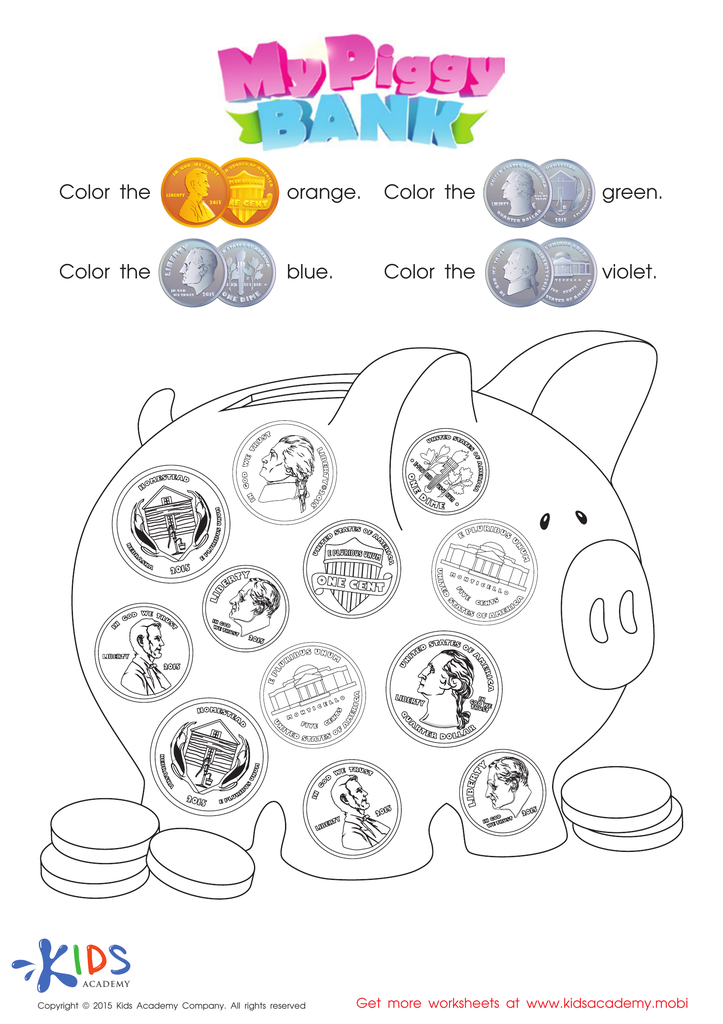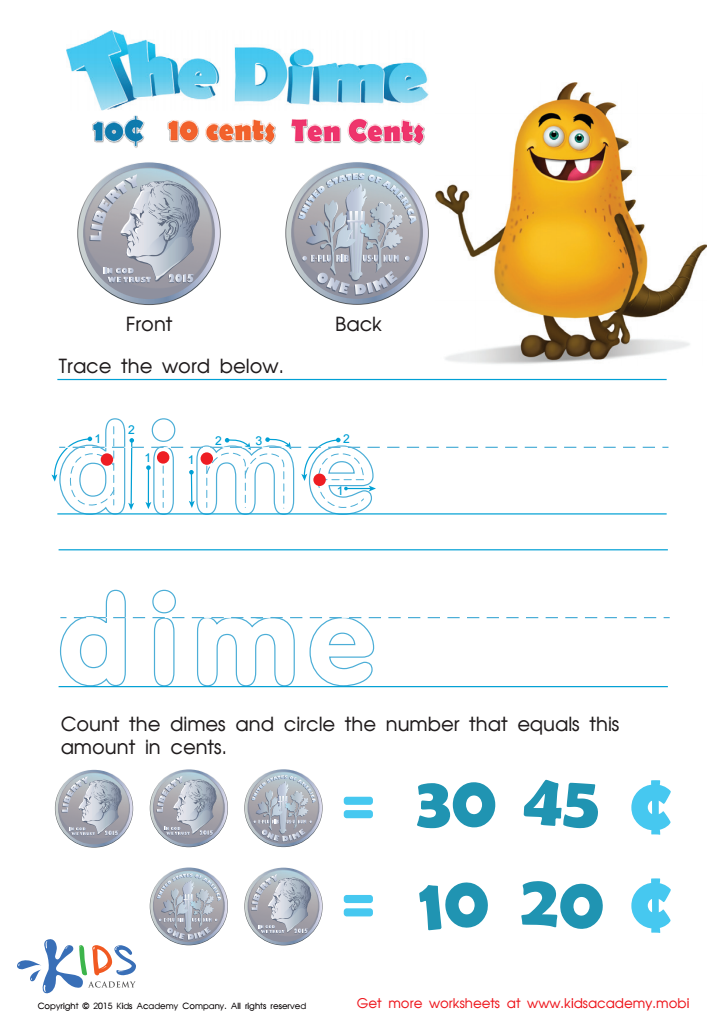Counting money Math Worksheets for Ages 3-8
3 filtered results
-
From - To
Explore our engaging Counting Money Math Worksheets designed for children aged 3 to 8! Our carefully crafted resources help young learners develop essential money counting skills through fun and interactive activities. These worksheets feature colorful images of coins and bills, making it easy to understand the concept of money while fostering early arithmetic skills. Ideal for home or classroom use, our materials promote hands-on learning and boost confidence in mastering basic math. Whether your child is starting with simple coin values or advancing to making change, our Counting Money worksheets provide a solid foundation for financial literacy. Start learning today!


Recognizing Money Money Worksheet


Ten Cents or the Dime Money Worksheet
Teaching young children to count money is essential for their cognitive development and real-life applications. Beginning as early as age 3, introducing the concept of money helps children grasp basic math skills, including addition and subtraction. Counting money offers a tangible way to engage with numbers, reinforcing their understanding of value and quantity.
For parents and teachers, emphasizing money counting fosters essential life skills. As children learn to recognize coins and their worth, they gain confidence in making decisions involving money in real-life situations, such as shopping or saving for a desired toy. Counting money not only sharpens their mathematical abilities but also nurtures critical thinking, as children assess choices, compare costs, and develop budgeting habits.
Moreover, counting exercises can enhance fine motor skills as children handle coins and bills, strengthening hand-eye coordination. Through playful activities such as role-playing shop scenarios or counting piggy banks, educators and families can create an enjoyable learning environment. Ultimately, early exposure to counting money lays a foundation for financial literacy, empowering children to navigate financial responsibilities as they grow older. Investing time in teaching these skills not only enriches children's math mastery but also prepares them for a secure and independent future.


 Assign to My Students
Assign to My Students
















